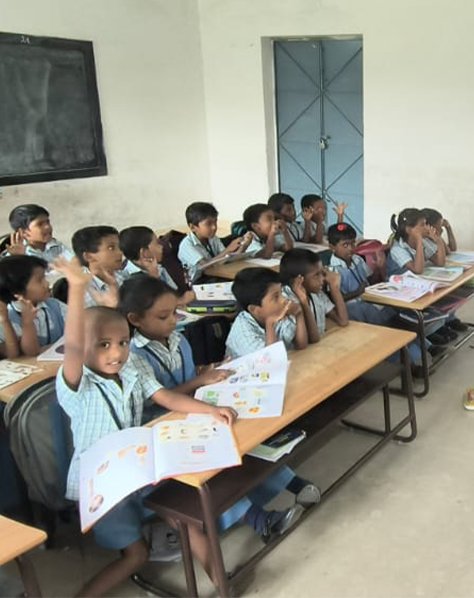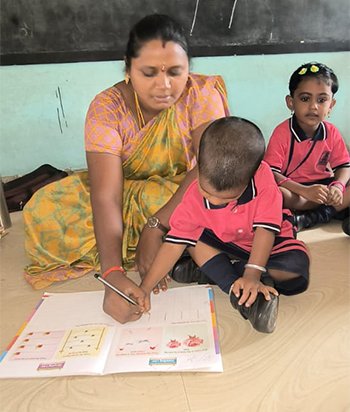- admissions@rootsmhsschool.com
- principal@rootsmhsschool.com
- Moongilpalayam,Erode-638056
- 7010198197
Teaching and Learning Approach


Teaching and Learning Approach
Teaching and Learning Approach
At ROOTS School, we believe that the teaching style should be matched with the learning style of each student. We employ a variety of teaching methodologies to ensure that every learner can thrive in their academic journey. These include:
- Interactive Learning: Our teachers use interactive techniques such as group discussions, peer-to-peer learning, and presentations to make lessons engaging and relatable.
- Digital Learning Tools: Classrooms are equipped with digital aids such as smart boards and projectors to enhance the learning experience. These tools help students better understand complex concepts through visual aids and real-time examples.
- Project-Based Learning: Students are encouraged to apply their knowledge through projects and practical assignments that allow them to explore subjects beyond textbooks.
- Personalized Attention: Teachers provide personalized guidance and support, ensuring that each student’s learning pace and understanding are carefully monitored. This individual attention helps identify areas where students may need additional support or encouragement.
Coaching and Support
- ROOTS School places significant importance on providing extra coaching classes to help students who may need additional support in certain subjects. These sessions are organized in a way that they do not interfere with the regular academic schedule, ensuring a balanced approach to both curriculum completion and extra coaching. The school offers:
- Remedial Classes: For students who need help in specific subjects, remedial classes are conducted to help them grasp difficult concepts.
- Enrichment Programs: High achievers and motivated students can participate in enrichment programs that offer advanced study materials, challenging assignments, and deeper explorations of academic topics.
Assessment and Evaluation
- Our evaluation system at ROOTS School is designed to be continuous and comprehensive, focusing on both formative and summative assessments. The main assessment tools include:
- Periodic Tests and Exams: Regular tests, mid-term exams, and final exams ensure that students are evaluated consistently throughout the academic year. These assessments help track progress and identify areas for improvement.
- Skill-Based Assessments: In addition to regular academic evaluations, skill-based assessments are conducted in co-curricular activities, creative thinking, and problem-solving to encourage holistic development.
- Parental Involvement: Parents are kept informed of their child’s progress through regular Parent-Teacher Meetings and detailed academic reports. These meetings offer opportunities for parents to engage with teachers and discuss ways to further enhance their child's academic growth.


